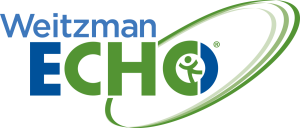
Weitzman ECHO Peer Recovery Support in Ohio: Recordings and Materials
Program Information
The live activity "Weitzman ECHO Peer Recovery Support in Ohio" occurred from February-August 2024.
This activity is now available for learners who would like to view the recordings and materials from one or more of the Weitzman ECHO Peer Recovery Support in Ohio live sessions.
This ECHO continuing education program connected Certified Peer Recovery Supporters in rural areas of Ohio to a community of other Peer Supporters facing similar issues working with peers and in the workplace. Experienced faculty members who are either Peer Supporters themselves, train Peer Supporters, or are medical or behavioral health providers who work collaboratively with Peer Supporters attended every session to train participating Peer Supporters and offer guidance.
Each one-hour ECHO session includes a 25-minute presentation by experienced faculty on a high-need topic relevant to Peer Recovery Supporters such as crisis intervention and de-escalation, trauma-informed care, boundaries with peers, goal setting, and teamwork and a short presentation by a participating Peer Supporter of a challenge they are facing in their work. Afterward, faculty and participating Peer Supporters on the call had an open discussion to offer recommendations on how to best support peers and brainstorm actionable solutions for these challenges.
Continuing education credits are available to learners who did not participate in the live series in compliance with Ohio Department of Mental Health and Addiction Services recertification requirements.
Weitzman ECHO Peer Recovery Support in Ohio is a collaboration between Weitzman ECHO and Ohio Department of Mental Health and Addiction Services (OhioMHAS).
 |  |
Target Audience
This activity is appropriate for Certified Peer Recovery Supporters, Youth Peer Supporters, and Family Peer Supporters. It is specifically designed for Peer Recovery Supporters in rural Ohio, but many of the sessions are applicable to any Peer Supporters seeking to strengthen their skills in supporting peers in recovery.
Acknowledgement of Support
This activity was a part of the HRSA's Rural Communities Opioid Response Program to improve rural health outcomes.
This project was supported by the Health Resources and Services Administration (HRSA) of the U.S. Department of Health and Human Services (HHS) as part of an award totaling $300,000 with 0% financed with non-governmental sources. The contents are those of the author(s) and do not necessarily represent the official views of, nor an endorsement, by HRSA, HHS, or the U.S. Government. For more information, please visit HRSA.gov.
Learning Objectives
Upon completion of this activity, participants should be able to do the following:
- Illustrate effective peer engagement strategies to set and maintain boundaries, demonstrate ethical reasoning, and use de-escalation techniques to encourage appropriate peer interactions.
- Adapt professional skills and individual strengths within the work environment to maximize potential, advocate for the Peer Support role, enhance communication, and better navigate challenges.
- Implement self-care strategies to counteract the impact of compassion fatigue, burnout, and direct or secondary exposure to trauma.
- Recognize the importance of addressing social determinants of health and assisting peers in navigating the recovery system and accessing resources.
- Demonstrate cultural humility and an increased awareness of how race, ethnicity, gender, and sexual orientation impact a peer’s recovery.
- Understand current behavioral and medical treatment options for substance use disorders to assist peers in navigating their recovery journeys.
Available Credit
- 16.00 Participation Hour(s)You are able to download an unaccredited Participation Certificate for your records if you are not able to use any of the credit types provided for this activity or if this activity does not offer accredited CME/CE credits.

 Facebook
Facebook X
X LinkedIn
LinkedIn Forward
Forward